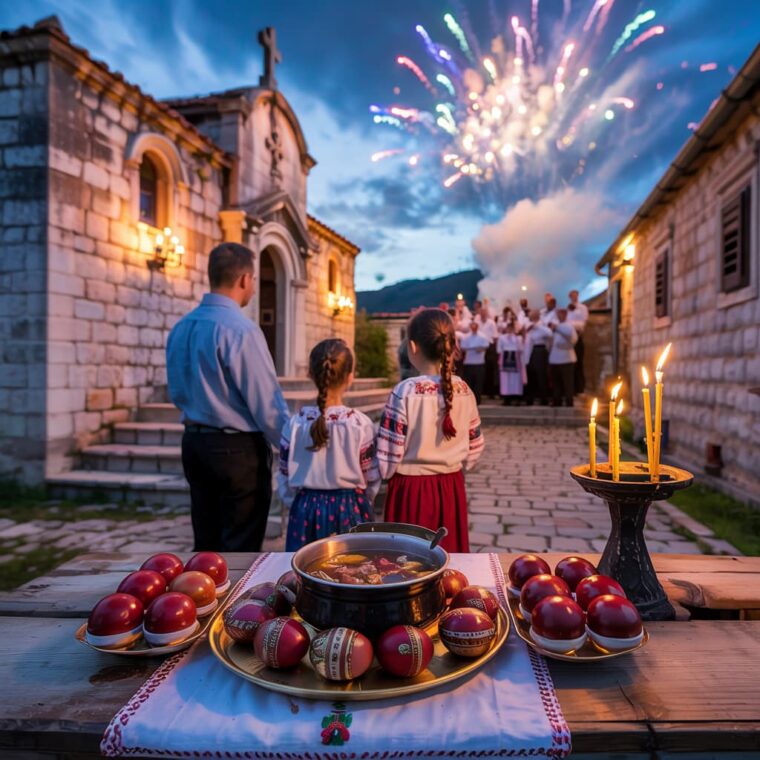- Cultural Heritage Alive: Greek traditions, ancient mythology, and historical landmarks remain integral to everyday life. Timeless customs like the Volta and rituals observed at the Acropolis keep the nation’s past alive in modern culture.
- Festivals and Culinary Journeys: Greek festivals blend religious ceremony, music, and community storytelling into vibrant social events. Traditional foods—from slow-roasted lamb at Easter to regional delicacies—offer a flavorful glimpse into Greece’s storied culinary heritage.
- Immersive Travel Experiences: Sailing trips along Greece’s coasts provide intimate encounters with island life, ancient trade routes, and regional traditions. These journeys invite travelers to experience local festivals, artisan crafts, and genuine Greek hospitality firsthand.
KEY TAKEAWAYS
Introduction
The cultural highlights of Greece are deeply woven into everyday life, offering visitors a mosaic of living history, vibrant rituals, and time-honored customs. From island villages to bustling cities, Greek culture is alive in its spirited festivals, cherished traditions, and legendary cuisine. These elements are not just relics of the past—they shape the Greek way of life today.
Traditions in Greece are passed down through generations, often centered around religion, family, and regional identity. Celebrations like name days, religious feasts, and local festivals bring communities together in celebration, storytelling, and music.
Greek festivals and food form the soul of its cultural experience. From the aroma of slow-roasted lamb during Easter to the haunting rhythm of lyra music at village fairs, each moment is rich with heritage. Join us as we set sail through Greece’s enduring traditions, seasonal festivals, local flavors, and culture-infused journeys by sea.
Greek Festivals and Food
Easter Celebrations: A Sacred and Social Affair
Greek Orthodox Easter stands as the most important religious event in the country and is deeply tied to ancient customs. Unique traditions begin on Holy Thursday with the dyeing of eggs in a bright, symbolic red—representing the blood of Christ and renewal. On Holy Saturday, families gather for the Resurrection Service, held at midnight. After church bells peal and the ‘Christos Anesti’ (Christ is Risen) hymn is sung, the sky explodes with fireworks across villages and cities.
The feast begins after the service with “Magiritsa,” a traditional soup made from lamb offal, followed later on Sunday by the full Easter meal: slow-roasted lamb on a spit, often cooked over open flames for hours. Regional variations include stuffing the lamb with greens, rice, and herbs in mountainous Epirus, or lemony oven-baked lamb in the Peloponnese. Sweet treats like tsoureki (braided egg bread) and koulourakia (butter cookies) round out the Easter table.
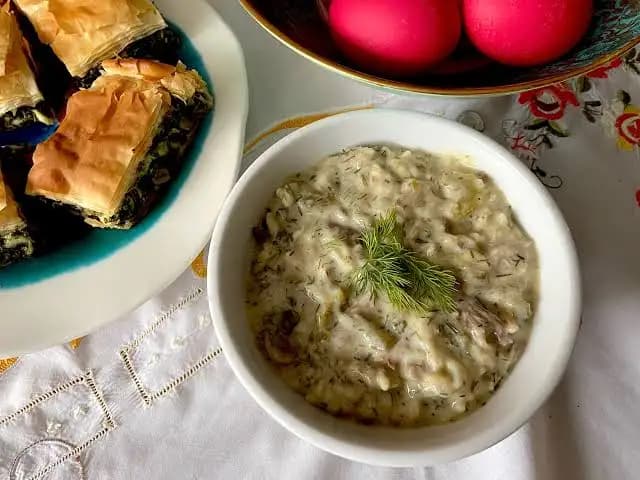
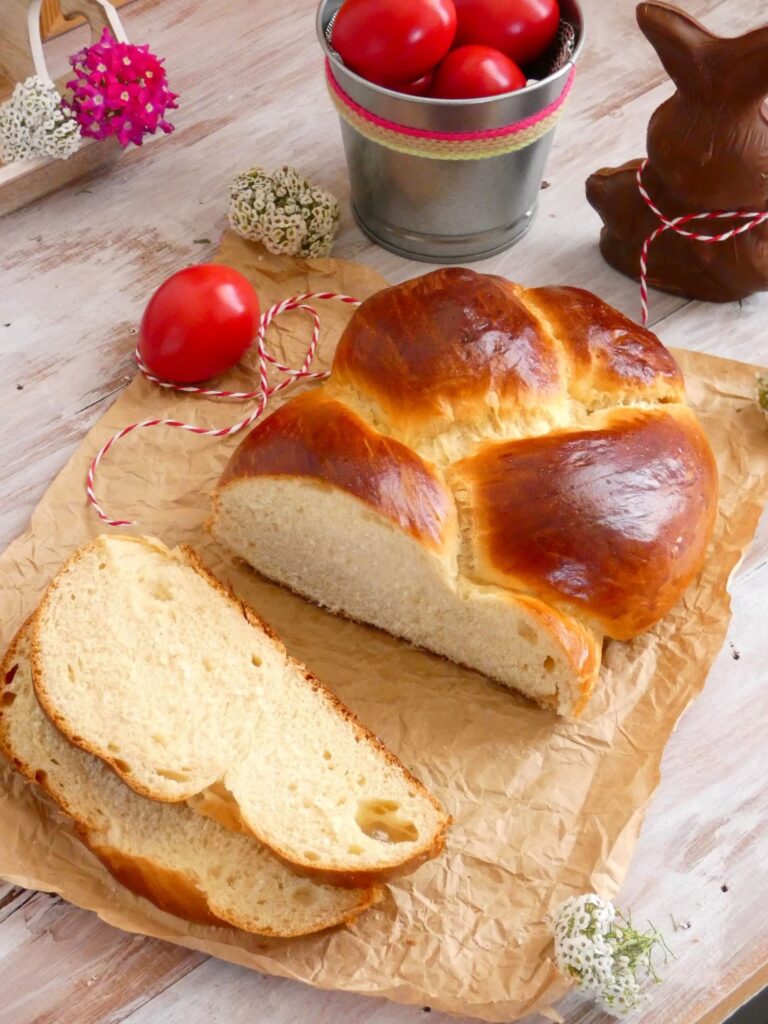

Athens and Epidaurus Festival: A Stage of Antiquity
Held annually from June to August, the Athens and Epidaurus Festival is Greece’s premier cultural event, celebrating the performing arts amid some of the country’s most iconic ancient venues. The ancient theatre at Epidaurus—known for its perfect acoustics and 14,000-seat marble amphitheater—hosts open-air performances of classical Greek tragedies by Euripides, Sophocles, and Aeschylus. In Athens, stages like the Odeon of Herodes Atticus beneath the Acropolis light up with orchestral concerts, ballet, and avant-garde theatre.
This festival highlights not only Greece’s immense artistic legacy but the continuity of tradition that binds ancient rituals with modern expressions. Attending a performance in a 4th-century BCE theater while listening to modern compositions is a rare, immersive cultural experience for any visitor.
Traditional Greek Cuisine: A Tapestry of Regions
Food in Greece isn’t just sustenance—it is ritual, identity, and celebration. Whether you’re in a bustling Athenian market or a quiet island taverna, Greek cuisine tells stories shaped by geography and history. Staple dishes like moussaka—a layered casserole of eggplant, spiced meat, and creamy béchamel—are found nationwide, while souvlaki (marinated meat grilled on skewers) serves as the go-to street food.
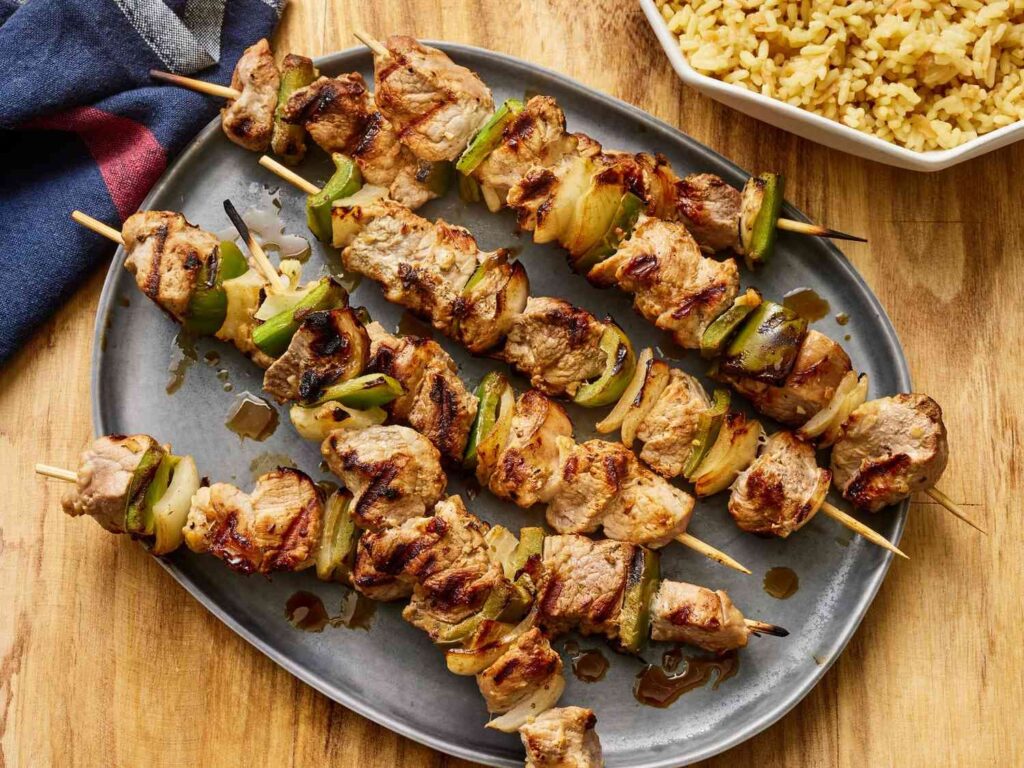
Baklava, rich with layers of phyllo pastry, crushed nuts, and honey syrup, reflects the country’s Ottoman influences. Cretan cuisine brings its own local flair with kalitsounia—small cheese or herb pies made with hand-rolled dough, often sweetened with local thyme honey. In the Cyclades, seafood dominates: grilled octopus, sea urchin roe salad, and lemony prawns highlight the catch of the day.
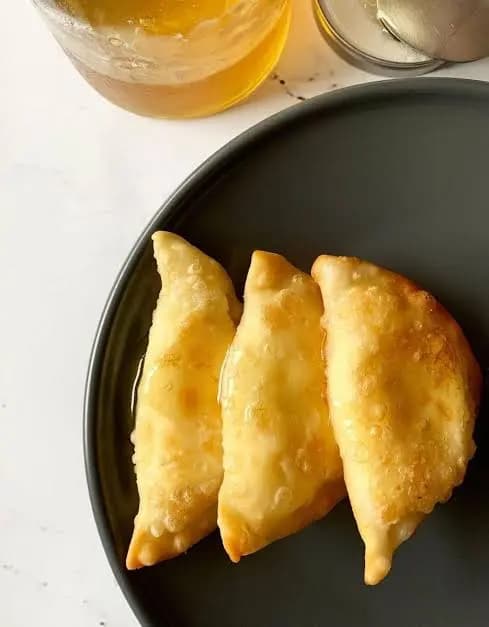
Local traditions dictate ingredients—mountain villages rely on wild greens, while coastal regions blend citrus and herbs with fresh fish. Whether you’re breaking bread after a church service or sharing meze plates during a family celebration, mealtime is a social ritual rooted in heritage. Exploring family-run tavernas and regional farmers’ markets is the best way to experience the culinary diversity behind Greek festivals and food.
Culture-Rich Sailing Trips
Sailing through the Aegean and Ionian Seas isn’t just a scenic escape—it is a deep dive into centuries of history and tradition. Culture-rich sailing trips in Greece retrace ancient maritime trade routes that once connected East and West, linking storied islands and coastal towns where Greek culture continues to thrive.
One of the most accessible and history-packed routes sails through the Saronic Gulf. Close to Athens, this area blends convenience with culture. Hydra offers a unique charm—cars are banned, and donkeys are still used for transport. Neoclassical mansions line the harbor, echoing the time when Hydriots dominated the shipping trade in the 18th century. On Poros, pine forests meet ancient temples such as the Temple of Poseidon, revealing timeless spiritual traditions.
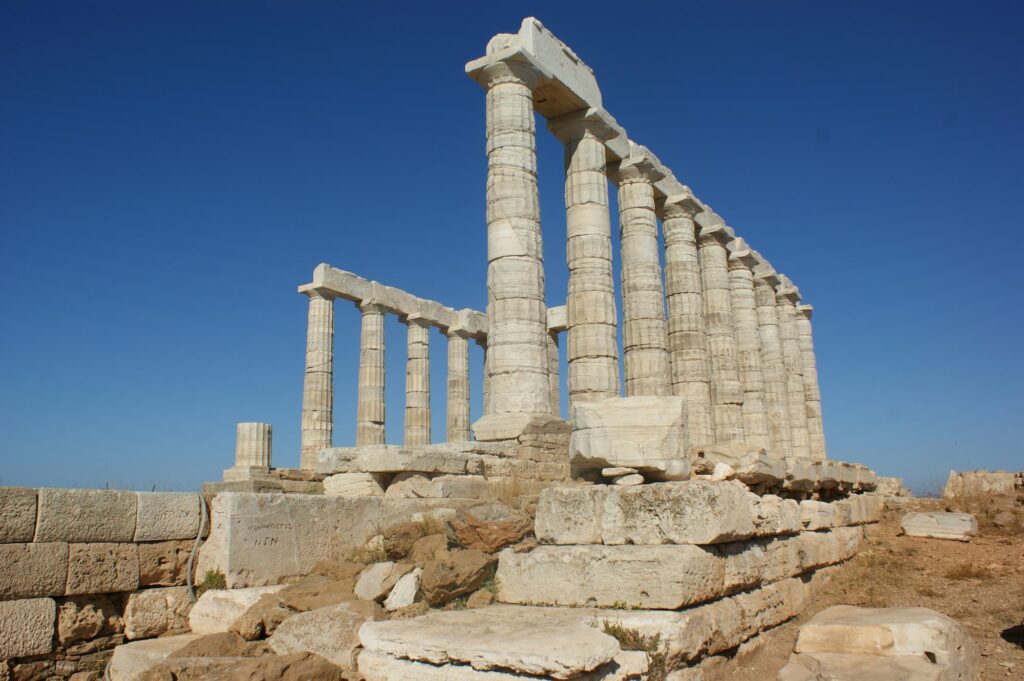
In the Cyclades, tradition merges with postcard-perfect landscapes. Mykonos is famed today for its cosmopolitan flair, but its roots lie in ancient mythology—said to be the site where Zeus battled the Titans. Narrow passageways in whitewashed villages lead to historic monasteries and 16th-century windmills. On nearby Santorini, 3,500-year-old ruins of Akrotiri unveil a Minoan civilization frozen in volcanic ash. Local wineries, dating back generations, introduce age-old viniculture that began in the Bronze Age.
Further east, the Dodecanese islands present a tapestry of diverse influences—Byzantine, medieval, and Ottoman. In Rhodes, the fortified Old Town is a UNESCO World Heritage Site packed with Gothic architecture from the Knights Hospitaller. Sailors can anchor near Patmos, home to the Cave of the Apocalypse and centuries-old monastic life at the Monastery of Saint John, where liturgical tradition thrives.
Cultural immersion happens beyond the landmarks. Many sailing routes coincide with island festivals. In Kalymnos, the Sponge Diving Festival honors the island’s maritime identity with boat races, dances, and sponge-cutting demonstrations. On Symi, artisans welcome visitors into workshops where wood-carving, icon-painting, and embroidery are passed down through generations.
See yacht charter Greece options.
Travellers enjoy authentic Greek life through philoxenia—an ancient value meaning “friend to strangers.” Sharing meze in seaside tavernas, attending open-air music performances, or joining in panigiria (village feasts) brings guests close to real Greek customs on every port of call.
These culture-rich sailing trips offer more than movement between islands—they reveal the living traditions, artistry, and stories that shape Greece’s maritime soul.
Greek Traditions
Few countries have preserved their customs as deeply and vividly as Greece. Ancient traditions remain tightly woven into everyday life, preserving a strong sense of cultural continuity. Greek mythology, once told under the bright Aegean sun, still influences global literature and cinema. Stories of the twelve Olympian gods, divine tragedies, and heroic legends fuel the identity Greeks carry today. These myths are not mere stories—they shaped cities, art, and political ideas.
Nowhere is this legacy more evident than the Acropolis in Athens. Built in the 5th century BCE, it’s a living monument to ancient democracy, philosophy, and architecture. The Parthenon honors Athena, the city’s patron goddess. The architectural symmetry seen in its columns helped define classical design across the Western world. Today, these ancient values inspire civic participation and national pride in Greeks of all ages.
Beyond monuments, traditions find daily expression in simple habits. The “Volta,” an evening walk through town squares or coastal promenades, is a cherished social ritual. It’s not just a stroll—it’s a cultural heartbeat, a way to connect with neighbors while embracing one’s surroundings. Similarly, the kafeneio—local coffee houses filled with spirited debate, gossip, or quiet backgammon games—remains a key part of Greek life.
Ceremonies also reflect deeply rooted customs. Greek Orthodox weddings include the “stefana,” ceremonial crowns symbolizing unity, and the “Dance of Isaiah,” a circle tradition around the altar. Baptisms are elaborate, marking spiritual initiation. Name days, sometimes celebrated more than birthdays, are rooted in honoring the saints. Easter, the holiest celebration, includes midnight processions, lamb feasts, and the cracking of red eggs, symbolizing the resurrection.

These timeless practices foster intergenerational bonds and community strength. Whether through festivals or everyday rituals, traditions continue to shape the cultural soul of Greece—blending past and present into a living heritage.
Integrating Culture into Travel
To truly connect with Greece’s soul, immerse yourself in its Greek festivals and food experiences. Research event calendars by region—Easter festivities in Corfu, Apokries (Greek Carnival) in Patras, and the Athens Epidaurus Festival in summer offer unforgettable glimpses into Hellenic spirit. Engage with locals at panigiria, village feasts held in honor of patron saints, where music, dance, and grilled lamb are constants. These celebrations are ideal points to experience authentic music styles like rebetiko and traditional instruments such as the bouzouki.
Greek cuisine is more than eating—it’s storytelling. Visit farmers’ markets for seasonal produce like wild greens (horta) or fresh octopus. Join cooking classes in places like Crete or Naxos where family recipes span generations. Take part in food festivals like the Chios Mastiha Festival or Sitia Olive Oil Fair for regional delicacies. These activities offer deep connections to local culture through taste and touch.
Culture-rich sailing trips along the Ionian or Cycladic coasts allow access to remote islands steeped in folklore, monasteries, and artisanal villages. Dock near Tinos to learn marble crafting or sail to Ikaria where life is unrushed and longevity is celebrated.
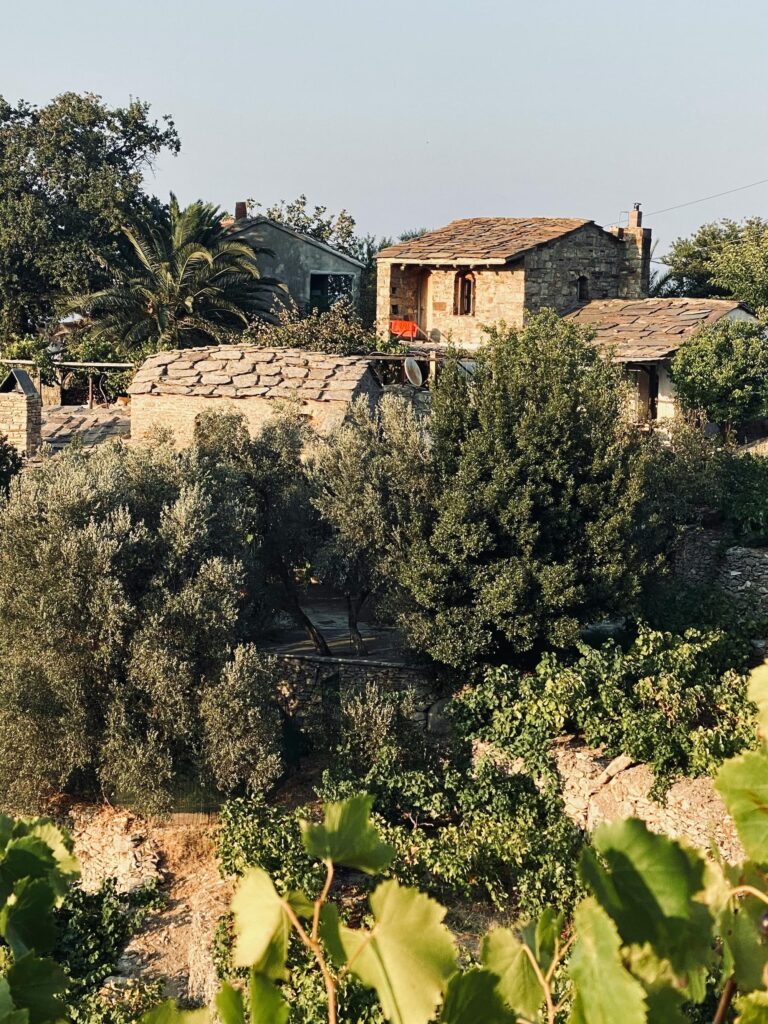
Respecting customs completes the experience. Learn basic Greek greetings, dress modestly in monasteries, and understand philoxenia—the revered Greek tradition of guest-friendship. Staying in family-run lodgings further enhances cultural immersion.
Conclusion
From the ancient rhythms of Apokries carnival to the mouthwatering flavors of mastiha in Chios, the cultural highlights of Greece reflect millennia of proud heritage. These experiences—rooted in Orthodox customs, regional rituals, and enduring social values like philoxenia—are best explored through hands-on travel. Whether savoring Cretan dakos at a local taverna, sailing towards sacred Delos, or joining rural harvest festivals, each moment reveals a layer of Greece’s living history. Its traditions aren’t preserved in museums—they are alive in its music, cuisine, and people. Embrace the nation’s deep cultural soul and uncover timeless stories on every island and village street.
Learn more about Greece by reading our yacht charter in Greece guide.
| Category | Details |
| Cultural Overview | Greece’s cultural highlights weave together living history, vibrant rituals, time-honored customs, and ancient myths with modern expressions—shaping everyday life in both bustling cities and quiet island villages. |
| Greek Festivals | Easter Celebrations: Holy Thursday egg dyeing in red, midnight Resurrection services, fireworks, Magiritsa soup, slow-roasted lamb, tsoureki, and regional variations. Athens & Epidaurus Festival: Annual performing arts extravaganza held from June to August in ancient theaters, melding classical tragedies with modern compositions. |
| Traditional Cuisine | Greek cuisine is a tapestry of regional flavors—moussaka, souvlaki, baklava, local cheeses, and seafood specialties. Dishes reflect cultural heritage and are often enjoyed at family-run tavernas and local markets. |
| Culture-Rich Sailing Trips | Sail through the Aegean and Ionian Seas along historic maritime routes. Discover islands like Hydra, Mykonos, Santorini, Rhodes, and Patmos, where ancient temples, neoclassical architecture, artisanal workshops, and island festivals offer immersive cultural experiences. |
| Traditions & Daily Life | From the Acropolis in Athens to local kafeneio gatherings and the evening “Volta” strolls, traditions such as Orthodox ceremonies (weddings, baptisms, name day celebrations) and mythology continue to sculpt the cultural soul of Greece. |
| Integrating Culture into Travel | Embrace authentic experiences by participating in panigiria, cooking classes, and farmers’ market tours. Learn basic Greek greetings, dress modestly in sacred sites, and practice philoxenia—the cherished Greek hospitality. |
| Best Time to Experience | Major cultural events occur in summer (June to August for festivals) and during Easter. Each season offers unique food, festivities, and sailing opportunities across the islands. |
FAQs
The cultural highlights of Greece include its vibrant festivals, time-honored traditions, and legendary cuisine. These elements are not only historical but continue to shape Greek life today.
Greek culture deeply integrates festivals and food, with events like Easter featuring traditional dishes such as slow-roasted lamb and magiritsa soup, as well as regional festivities that highlight local flavors and culinary practices.
The Athens and Epidaurus Festival, held annually from June to August, showcases performing arts in ancient venues like the Epidaurus theatre and the Odeon of Herodes Atticus, combining Greece’s artistic legacy with modern expressions.
Greek cuisine preserves traditions through regional specialties like moussaka, baklava, and various seafood dishes, reflecting influences from history and geography with a focus on local ingredients.
Culture-rich sailing trips in Greece offer a journey through historical maritime routes, exploring islands with long-standing traditions, such as Hydra’s car-free charm and Santorini’s ancient ruins, and coinciding with local festivals.
Greek traditions appear in everyday life through customs like the evening ‘Volta’, social interactions in local coffee houses, and family ceremonies such as weddings and baptisms, all preserving cultural continuity.
Philoxenia, meaning ‘friend to strangers’, is a revered Greek tradition that fosters hospitality and connection, inviting travelers to experience authentic Greek life through shared meals and community celebrations.

